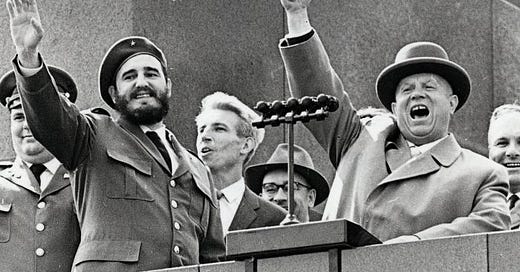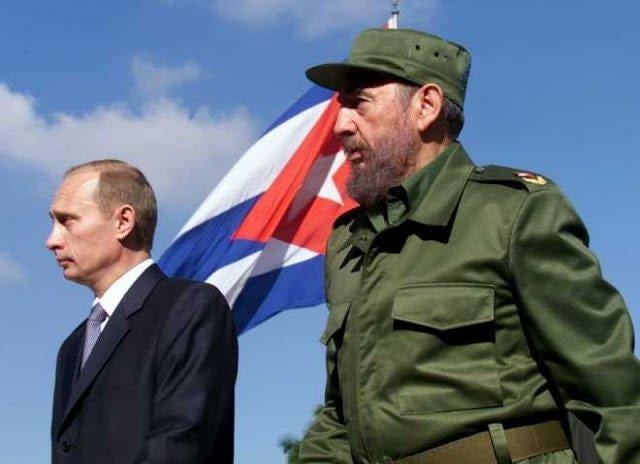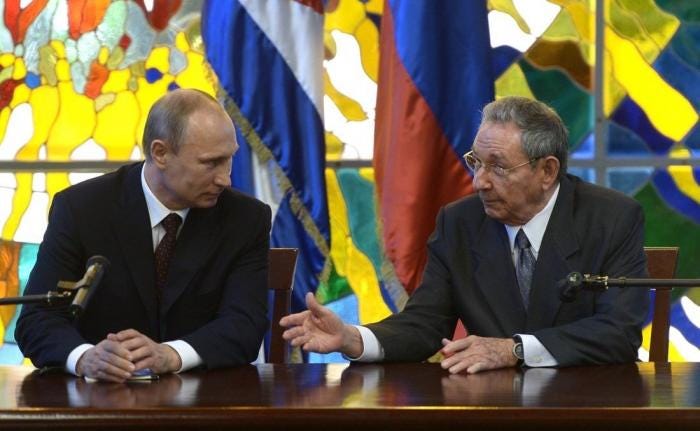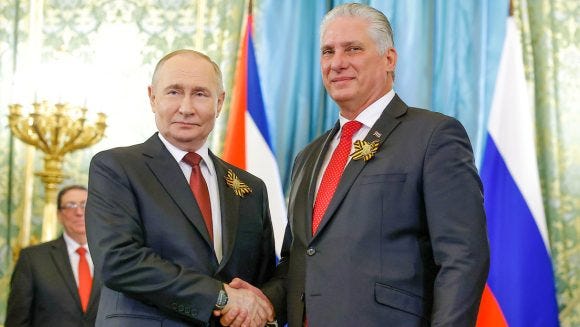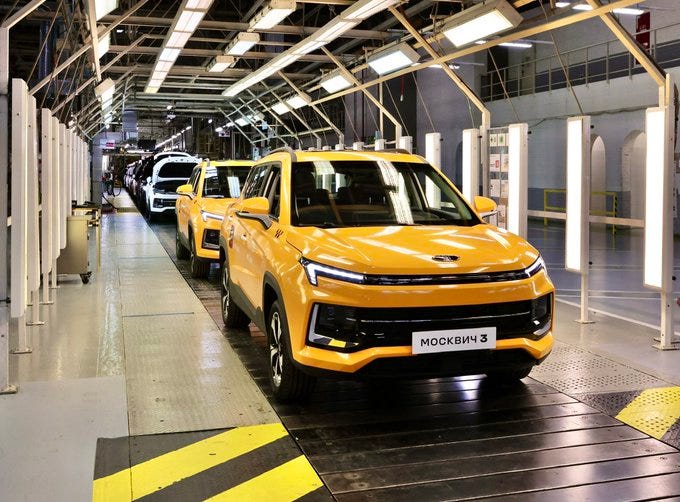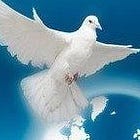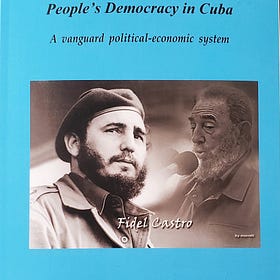Cuba and Russia celebrate deep relations
A historic relation seeks to advance toward mutually beneficial commerce
Cuban President Miguel Díaz-Canel traveled to Saint Petersburg and Moscow this past week, in response to the invitation of Russian President Vladimir Putin to attend the commemoration of the eightieth anniversary of the victory over fascism on May 9, 1945, and the commemoration of the sixty-fifth anniversary of the reestablishment of diplomatic relations between Cuba and Russia on May 8, 1960.
With respect to the victory over fascism, the political cultures of the Soviet Union/Russia and the USA have had for decades different interpretations of the Second World War. The USA stresses the Normandy invasion of June 6, 1944, and the subsequent march of the allied forces to the east into Germany. But Russia stresses the Soviet victory in the battle of Stalingrad and the Russian resistance in the siege of Leningrad, breaking the German advance, and enabling the Russian march to the west and the arrival of Soviet troops in Berlin before the American forces.
§
The history of relations between Cuba and Russia
In a speech delivered at a ceremony commemorating the sixty-fifth anniversary of the reestablishment of diplomatic relations between Cuba and Russia, Cuban President Miguel Díaz-Canel stressed the long and deep relation between Russia and Cuba. He noted that there were Russian soldiers in the Cuban forces during the second Cuban Revolutionary War of 1895-1898, serving under the command of General Antonio Maceo. And he recalled that there were three Cubans in the Red Army during the Second World War, namely, Enrique Vilar and the brothers Jorge and Aldo Vivó. Aldo and Enrique fell in combat, while Jorge survived. The three were given high honors by the Supreme Soviet of the USSR and by the Cuban Council of State.
Díaz-Canel explained that the newly created Republic of Cuba established diplomatic ties with Czarist Russia in 1902, and in 1942, the Cuban government established diplomatic relations with the Soviet Union. However, in 1952, following the Batista coup d’état, Cuba broke relations with the USSR, due to the subordination of the Cuban government to the United States. But a little more than one year after the triumph of the Cuban Revolution, the Cuban Revolutionary Government decided to reestablish relations with the USSR, on May 8, 1960, initiating a new stage of ties between two independent and sovereign nations. Raúl Castro, then Minister of the Revolutionary Armed Forces of Cuba, traveled to the USSR in 1960 and 1962. Fidel traveled to the Soviet Union in 1963, undertaking a tour that lasted thirty-eight days.
Díaz-Canel recalled that, on April 28, 1963, in a speech delivered in Red Square, Fidel declared, “Without the existence of the Soviet Union, the socialist Revolution of Cuba would not have been possible.” He was referring not only to the meaning of the October Revolution of 1917 for Cubans, but also to the material aid and cooperation provided by the Soviet Union in the difficult years immediately following the triumph of the Cuban Revolution, when the United States was taking the initial steps in what would become an illegal economic, commercial, and financial blockade against Cuba, which is today intensified.
Díaz-Canel recalled that in those years there was no impediment to the closeness between the two peoples and nations, “united by sympathy, friendship, mutual respect, and common sentiments with respect to the defense of just causes.” Thousands of Cuban youth studied in centers of higher education in the USSR in various areas of specialization, contributing to the development of Cuba, particularly industrial development. And forty-five years ago, in the first joint Soviet-Cuban space flight, Arnaldo Tamayo Méndez became the first Cuban and Latin American cosmonaut.
During the 1990s, the Cuban President remembered, both Russia and Cuba passed through difficult years, and relations cooled. Nevertheless, it did not break the mutual feelings of friendship, which permitted a continuation and later strengthening of the relation. Highlights of the renewed relation include the visit of Russian President Vladimir Putin to Havana and the visit of Raúl Castro to the Russian Federation. In 2018, during a visit of Díaz-Canel to Russia, a joint declaration affirmed a common focus in international affairs and declared the two nations to be allies. Cuba and Russia, Díaz-Canel stressed, share a common perspective concerning international affairs. They share essential values with respect to multilateralism and the principles of the UN Charter, standing opposed to an international order imposed by the West, to imperialist and hegemonic policies, and to unilateral sanctions and coercive measures. Cuba and Russia promote dialogue and cooperation for the promotion and protection of human rights, as against the manipulation of the issue of human rights as a pretext for interfering in the internal affairs of States.
§
Mutually beneficial cooperation
In recent years, Cuba and Russia have undertaken intense collaboration in different areas, including agriculture, energy, military technology, tourism, sport, education, science, and culture. Russia participates in strategic projects of the Cuban National Plan for Social and Economic Development for 2030, in sectors that are fundamental to the Cuban economy, such as energy, transportation, the railroad industry, agriculture, communications, biotechnology, and the pharmaceutical industry. In the meeting between Putin and Díaz-Canel and delegations from their respective countries on May7, Putin confirmed that the Russian government will subsidize interest rates for Russian companies to invest in Cuba, which is expected to generate more than one billion dollars of investment by Russian private companies in sectors of high priority for Cuba.
In addition, Cuba is a popular destination for Russian tourists, who are warmly received on the island. The Vice-President of the Russian Federation, Dimitri Nikolaevich Chernyshenko, declared that Russia intends to become the country with the greatest number of tourists in the Cuban market.
Moreover, Russia played a key role in supporting the inclusion of Cuba in BRICS as a partner country, and as an Observer State in the Eurasian Economic Union (a union of five post-Soviet States). The Cuban President declared that “cooperation and solidarity are the fundamental bulwarks of our relationship.”
On May 6 in Saint Petersburg, the Cuban President visited two medical research centers that are cooperating with the Cuban company Biofarma. The first was Biocad, which works on the complete cycle of research, development, and production of medicines for the treatment of chronic, serious, and rare diseases. The entity has six industrial facilities and forty laboratories. It exports to more than thirty countries, especially in South Asia, Africa, and Latin America, including Cuba. The second was Geropharm, which focuses on the research and production of a variety of insulins. Eight products of the two Russian companies are registered and distributed by the Cuban medical system.
As the Cuban president pointed out during his visits to the research centers, Russian President Putin and the Russian-Cuban Intergovernmental Commission for Economic-Commercial and Scientific-Technical Cooperation give high priority to joint development in biotechnology and the pharmaceutical industry. In the 1990s, Cuba established twenty centers dedicated to the research and development of biotechnological and pharmaceutical products. Today Cuba is recognized in many countries of the world for its production of medicines of advanced development, including vaccines against lung cancer and other types of cancer, hepatitis, and COVID-19.
On May 8 in Moscow, the Mayor of the Russian capital city, Serguéi Sobianin, showed the Cuban President its Moskvich automobile factory, which is presently manufacturing cars that will be sent to Havana in a few months. The vice-mayor of Moscow for industrial and transportation affairs, Maxim Liksútov, explained the project. The factory will manufacture and send twenty-five Moskvich 3 cars plus another twenty-five electric cars, the Moskvich 3e. They will be sent to a taxi park in Havana, which will be managed by a joint Russian-Cuban company. The Moskvich factory will also send repair parts and arrange for the training of Cuban specialists. During the tour of the plant, Díaz-Canel commented that the Moskvich is a durable car of high quality. He notes that the Moskvich brand is popular in Cuba, imported to Cuba from the 1960s to the 1990s, still functioning today after all these decades, thanks to the ingenuity of Cuban mechanics.
In a televised interview of Díaz-Canel conducted jointly on May 7 by the Russian news outlet Russia Today and by the Cuban program Mesa Redonda, the Cuban President declared:
In the dialogues with President Putin, which have been many and systematic in these years, in person and also by telephone conversations or videoconferences, we have always found an enormous sensitivity of President Putin towards Cuba's problems, an enormous understanding of the Cuban reality and a willingness to help and cooperate with Cuba. They are relationships of respect, they are relationships of trust, they are relationships of friendship, and they are also strategic relationships. There is a high level of relations with respect to political dialogue, but there is also a very high level of relations in the economic and commercial sphere, although not reaching the same level as the political dialogue, as both parties aspire. We are trying to strengthen the economic and commercial relationship so that we can take greater advantage of the complementarity that we can offer each other with mutually beneficial economic and social development projects.
A free subscription option is available, with capacity to read, send, and share all posts. A paid subscription ($5 per month or $40 per year) enables you to make comments and to support the costs of the column; paid subscribers also receive a free PDF copy of my 2018 book, The Evolution and Significance of the Cuban Revolution.
Deepen your understanding of people’s democracy, a post-bourgeois form of democracy necessary for our times:
People’s Democracy in Cuba
My book on Cuba, People’s Democracy in Cuba: A vanguard political-economic system, is now available in paperback through Barnes & Noble and Amazon, in addition to the previously available Ebook edition.
